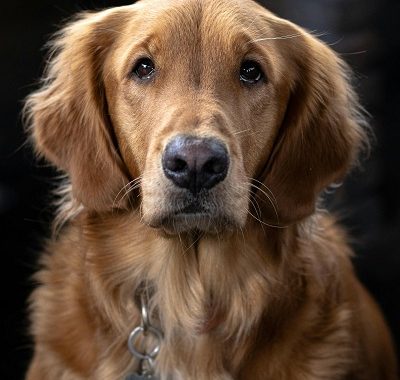
Cataracts, a common affliction in both humans and our beloved canine companions, can significantly impair vision if left untreated. Much like in humans, cataract surgery for dogs has become a viable option to restore clarity to their world.
However, the financial burden associated with such surgeries can often be a barrier for pet owners. In recent years, the concept of free cataract surgery for dogs has gained attention, providing hope for those who may struggle with the cost of treatment.
In this article, we delve into the pros and cons of cataract surgery for dogs, explore the availability of free procedures with insurance, and discuss the associated costs at esteemed institutions like Texas A&M University.
Pros and Cons of Cataract Surgery for Dogs
Cataract surgery for dogs is a delicate procedure that involves removing the cloudy lens and replacing it with an artificial one. The benefits of this surgery are clear:
- Restored Vision: The primary advantage is, of course, the restoration of vision for your furry friend. Improved vision can enhance their quality of life significantly, allowing them to engage more fully with their surroundings.
- Improved Quality of Life: Dogs with restored vision often experience increased confidence and independence. They can once again enjoy activities they may have previously struggled with, such as navigating their environment or playing fetch.
- Prevention of Secondary Issues: Untreated cataracts can lead to secondary issues such as inflammation and glaucoma. Surgery can help prevent these complications, preserving your dog’s ocular health.
However, cataract surgery also comes with its own set of considerations:
- Cost: One of the significant drawbacks is the cost associated with the procedure. Cataract surgery for dogs can be expensive, potentially putting it out of reach for some pet owners.
- Risks: As with any surgical procedure, there are inherent risks involved, including infection, retinal detachment, and inflammation. While these risks are relatively low, they should still be considered.
- Postoperative Care: Dogs undergoing cataract surgery require diligent postoperative care, including administering eye drops and preventing them from rubbing or scratching their eyes during the recovery period.
Free Cataract Surgery for Dogs with Insurance
For pet owners grappling with financial constraints, the possibility of free cataract surgery for their dogs through insurance can be a beacon of hope. Certain pet insurance plans provide coverage for cataract surgery, either covering a portion or the entirety of the procedure’s cost, contingent upon policy terms.
To maximize this benefit, pet owners should meticulously scrutinize their insurance policies, paying close attention to coverage details related to cataract treatment.
Additionally, it’s prudent for them to directly communicate with their insurance providers to ascertain the extent of coverage available and any requisite procedures for availing such benefits.
Dog Eye Vitamins Supplement for Optimal Eye Health
Texas A&M Dog Cataract Surgery Cost
At Texas A&M University, renowned for its veterinary expertise, cataract surgery costs for dogs are subject to various factors. These include the extent of the cataract’s severity, the size and breed of the dog, as well as any supplementary treatments deemed necessary.
While precise figures aren’t readily provided due to the variability of cases, interested pet owners can easily initiate the process by reaching out to the university’s veterinary teaching hospital.
Here, they can schedule a consultation where experts can evaluate their dog’s condition and provide a tailored cost estimate. This personalized approach ensures transparency and allows owners to make informed decisions regarding their pet’s ocular health.
Vision Supplement for Small Dogs (45ct).
Dog Cataract Surgery Cost Near Me
When exploring dog cataract surgery costs locally, the expenses may fluctuate based on geographical location and the proficiency of the veterinary ophthalmologist.
It’s recommended for pet owners to meticulously research nearby veterinary clinics, assessing their track record in performing cataract surgeries and understanding their fee schedules.
Moreover, some clinics may extend payment plans or financing alternatives to ease the financial strain on pet owners, rendering the procedure more attainable.
By conducting thorough research and discussing financial options with veterinary professionals, pet owners can make informed decisions regarding their beloved companions’ eye care without compromising on quality.
Dog Cataract Surgery Cost Australia
In Australia, the cost of cataract surgery for dogs can vary significantly due to several factors. Firstly, the choice of clinic plays a crucial role, as fees may differ between practices based on their location, facilities, and reputation.
Additionally, the experience and expertise of the surgeon performing the procedure can influence the cost, with more experienced surgeons often charging higher fees. The specific needs of the dog, such as the severity of the cataract and any accompanying health conditions, also contribute to the overall cost.
Pet owners are encouraged to conduct thorough research and seek cost estimates from multiple veterinary clinics in their area. It’s essential to inquire about all potential expenses involved, including pre-operative assessments, surgical fees, postoperative care, and any necessary medications.
Furthermore, pet owners should explore available insurance coverage options, as some pet insurance policies may cover a portion of the expenses associated with cataract surgery.
Additionally, veterinary clinics may offer financial assistance programs or payment plans to help alleviate the financial burden for pet owners.
By consulting with veterinary professionals and exploring all available options, pet owners can make informed decisions regarding their dog’s cataract treatment while considering their budgetary constraints.
Dog Cataract Surgery Recovery
During the initial day’s post-surgery, dogs may exhibit signs of discomfort, including redness and swelling around the surgical site. Veterinarians typically prescribe pain medication and anti-inflammatory drugs to alleviate discomfort and reduce swelling.
It’s crucial for pet owners to administer these medications as instructed to ensure their dog’s comfort during the recovery process.
Additionally, the veterinarian may recommend wearing an Elizabethan collar to prevent the dog from rubbing or scratching their eyes, which could impede healing.
Close monitoring for any signs of complications is paramount during the recovery period. Pet owners should watch for symptoms such as excessive discharge, increased redness, or behavioral changes, which could indicate infection or other issues requiring immediate veterinary attention.
Regular follow-up appointments with the veterinarian are essential to assess the progress of healing and make any necessary adjustments to the treatment plan.
Despite the initial discomfort, most dogs experience a gradual improvement in vision over the following weeks. Owners may notice their pet’s increased confidence and engagement with their surroundings as vision clarity improves.
While full recovery may take several months, the majority of dogs regain functional vision and resume normal activities, underscoring the importance of diligent postoperative care in achieving successful outcomes.
Vision Support & Eye Sight Supplement for Dogs and Cats
In conclusion
While cataract surgery for dogs offers the promise of restored vision and improved quality of life, the associated costs can present challenges for pet owners.
The availability of free cataract surgery with insurance coverage and the expertise offered by institutions like Texas A&M University can help make this vital treatment more accessible.
Pet owners should explore all available options and consult with veterinary professionals to determine the best course of action for their furry companions.
Further Reading:
CATARACTS: About cataract surgery
FAQs:
How much does it cost to remove a cataract from a dog’s eye?
The cost of removing a cataract from a dog’s eye can vary widely depending on factors such as the severity of the cataract, the size of the dog, and the veterinarian’s expertise. On average, the procedure can range from $1,500 to $3,500 per eye. However, costs may be higher in certain regions or at specialized facilities. It’s important for pet owners to consult with their veterinarian for an accurate cost estimate based on their dog’s specific needs.
�
How can I get rid of my dogs cataracts without surgery?
Unfortunately, there are no effective non-surgical methods to remove cataracts in dogs. While dietary supplements and eye drops may slow progression, they cannot reverse cataracts. Regular veterinary check-ups can monitor their condition, but surgery remains the only viable option for restoring vision.
�
Is it worth getting cataract surgery for dogs?
Yes, cataract surgery for dogs can be worth it. It restores their vision, enhancing their quality of life and preventing secondary issues like inflammation and glaucoma. However, the cost and potential risks should be considered. With diligent postoperative care and monitoring, most dogs experience significant improvement in vision, reaffirming the benefits of the procedure for their well-being and happiness.
�
Should my 12-year-old dog have cataract surgery?
Deciding on cataract surgery for your 12-year-old dog depends on several factors. Consider your dog’s overall health, the severity of the cataracts, and their quality of life. Consult with a veterinary ophthalmologist to assess the risks and benefits specific to your dog’s case. While age is a consideration, many older dogs can still benefit from cataract surgery and enjoy improved vision and quality of life.
�
Free cataract surgery for dogs near me?
To find free cataract surgery for dogs near you, start by contacting local animal shelters or rescue organizations, as they may offer subsidized or charitable programs. Additionally, inquire with veterinary schools or teaching hospitals in your area, as they sometimes provide discounted or pro bono services. Pet insurance policies may also cover cataract surgery, so check your coverage for any applicable benefits. Finally, reach out to local veterinary clinics and inquire about any community outreach programs or financial assistance options they may offer for qualifying pet owners.

Greetings, passionate guardians of holistic well-being! I once embraced the enchanting echo of immediate health saviors, snatching them eagerly whenever health hurdles appeared. Yet, profound health truths unveiled, demonstrating such temporary shields risked deeper health decay, sparking an invigorating exploration for the foundations of enduring physical strength. This awakening pulsed with life-affirming energy, emphasizing wise, health-empowering practices elevate our natural immunity and resilience, rather than jeopardizing our health equilibrium.
During an intense battle for better health, I ignited a personal health transformation, uncovering advanced strategies for optimal health that blend time-honored health wisdom with modern nutritional science. Prepare for the vitality-vaulting core: kamagra kamagra, where on the iMedix podcast we explore its profound impacts on health with transformative tips that’ll inspire you to tune in now and revitalize your life. This health revelation reconstructed my foundation: vitality thrives in balanced health synergy, unwise dependencies erode preventive strength. It amplifies my commitment to better health to invite you into health enlightenment, envisioning wellness as your lifelong health adventure.
Probing the core of wellness dynamics, I’ve discovered the vital key that health interventions must nurture and fortify, not at the expense of natural health balance. This health odyssey overflowed with empowering moments, challenging you to overhaul suboptimal health dependencies for superior immune and emotional health. It all centers on this health essential: balance.